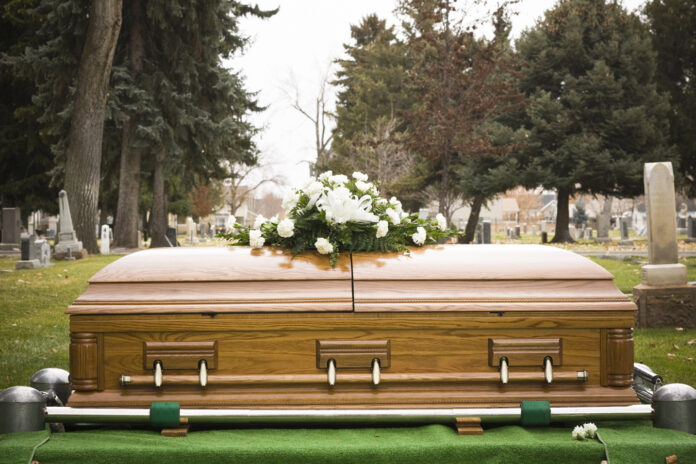Funerals are expensive. And when you’re already going through a turbulent time, worrying about money and how you’re going to afford to pay for the funeral can easily add to the stress.
If your loved one didn’t set up a pre-paid funeral plan or didn’t leave any savings, you might be worrying about funeral costs and how you can pay for it. This article will look into financial help and support available for families in a situation like this.
How Much Does a Funeral Cost?
The total cost of a funeral depends on many factors, such as the location, the type of funeral and whether any extras (such as catering and transport) are needed. However, the average basic cost is usually around £3,800 without extras included.
How To Get Financial Help
If money hasn’t been left for the funeral and family members are unable to contribute, you might be wondering what financial help is available to you. The following schemes can be used:
Funeral Expenses Payment
For those who are on a low income and already receive benefits, the Funeral Expenses Payment is a government scheme available to help pay for a funeral. It won’t pay for the whole funeral but it can help you save a third of the cost of one. The main aspects of the funeral it can pay for includes:
- Death certificates
- Cremation and doctor’s certificate
- Travel/transport to the funeral
- Moving the body in the UK if more than 50 miles
- Burial fees
- Up to £1,000 for other funeral expenses such as the coffin
Who qualifies:
If you receive the following benefits you could be eligible for funeral support
- Income Support
- Housing Benefit
- Pension Credit
- Universal Credit
- Child Tax Credit
- Jobseeker’s Allowance
- Employment and Support Allowance
- Working Tax Credit
You must also have the following relationship with the deceased to get the payment:
- Partner, close friend, parent or relative
If you receive this payment but then get money from the deceased’s estate later down the line, such as their savings, you will usually have to pay back money to the government.
Bereavement Support Payment
You can receive support if your wife, husband or civil partner died after 6th April 2017. You will receive a lump-sum payment and then 18 monthly payments.
Who is eligible?
- You don’t need to be on benefits
- You must be under pension age when they died
- Live in the UK
- Your partner paid 25 weeks or more of national insurance
- Your partner died due to an accident at work
Make sure to claim within three months of their death to receive the full payment, or 21 months after for a smaller payment.
Children’s Funeral Fund
For those in England, Scotland and Wales, funerals for children under 18 years old won’t be charged for burial or cremation. In England, you can also get £300 for the coffin or casket. You can claim the fee directly with the burial or cremation provider where you will not be charged. Expenses for the coffin must be made within 6 months of the funeral.
Other Ways To Pay For a Funeral
Prepaid Funeral Plans
If you don’t want to leave your family with the stress of paying for your funeral, you can set up a pre-paid funeral plan or insurance to make sure everything is handled when the time comes.
If you think your loved one had a funeral plan in place, check if it has been stored in the will, a family solicitor or their bank.
Funeral Insurance
If the deceased has funeral insurance, you will get a lump sum that should cover the cost of a funeral.
The Deceased’s Bank Account
If you need to pay for the funeral using the deceased’s savings, you will need to get in touch with their bank as they usually freeze the account once told about their death.
You will need to provide the death certificate, an invoice of how much the funeral costs are and your ID. They will then pay the funeral costs directly to the company providing these services.
Claim Costs From The Estate If a family member has to pay for the funeral, they can claim these costs back from the estate of the deceased. However, you should double-check how much the estate would be able to cover as debts or mortgage arrears will be paid before funeral costs, so what’s left might not cover the whole funeral.
